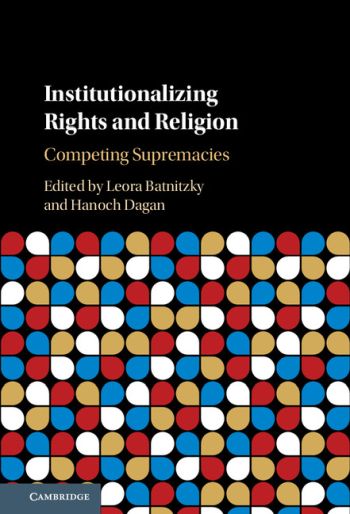
Modern statesmen and political theorists have long struggled to design institutions that will simultaneously respect individual freedom of religion, nurture religion's capacity to be a force for civic good and human rights, and tame religion's illiberal tendencies.
Moving past the usual focus on personal free expression of religion, this illuminating book - written by renowned scholars of law and religion from the United States, England, and Israel - considers how the institutional design of both religions and political regimes influences the relationship between religious practice and activity and human rights.
The authors examine how the organization of religious communities affects human rights, and investigate the scope of a just state's authority with respect to organized religion in the name of human rights. They explore the institutional challenges posed by, and possible responses to, the fraught relationship between religion and rights in the world today.